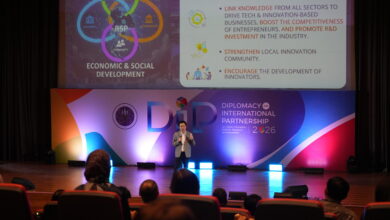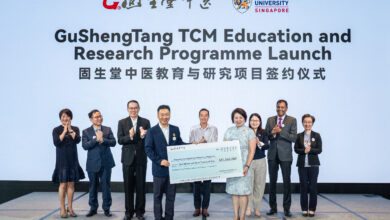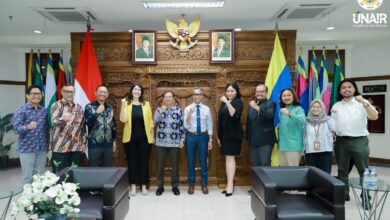Thammasat and Mahidol University Collaborate with WHO to Establish Global Knowledge Hub for Tobacco Control

The School of Global Studies at Thammasat University and the Convention Secretariat of the World Health Organization Framework Convention on Tobacco Control (WHO FCTC) recently entered into a Memorandum of Understanding (MoU). The purpose of this agreement was to establish a “WHO FCTC Knowledge Hub for Article 5.3” as a demonstration of our shared commitment to promoting tobacco control and implementing the WHO FCTC both in Thailand and worldwide. The signing ceremony for this MoU took place at Thammasat University’s Prakob Hutasing Conference Room.
Thammasat University and Mahidol University have joined forces to launch the next phase of the WHO FCTC Knowledge Hub for Article 5.3. The hub, situated at Thammasat University’s School of Global Studies, will play a vital role in raising awareness and fostering efforts to combat tobacco consumption in Thailand and across the globe.
Representatives from three organizations participated in the signing ceremony, including Asst. Prof. Dr. Prapaporn T. Mongkhonvanit, the Dean of the School of Global Studies at Thammasat University; Dr. Nuntavarn Vichit-Vadakan, Director of the WHO FCTC Knowledge Hub (KH) for Article 5.3; Dr. Adriana Blanco Marquizo, MD MA, Head of the Convention Secretariat of the WHO FCTC; Assoc. Prof. Gasinee Witoonchart, Rector of Thammasat University; and Prof. Banchong Mahaisavariya, President of Mahidol University.
Dr. Nuntavarn Vichit-Vadakan, Director of the WHO FCTC Knowledge Hub (KH) for Article 5.3 emphasized “The WHO FCTC plays an important role in addressing the health risks associated with smoking. The Knowledge Center for Article 5.3, will strengthen mechanisms for monitoring the tobacco industry’s interventions within the country and support tobacco control efforts in Thailand.”
For the past five years, the WHO FCTC Knowledge Hub for Article 5.3 has been actively assisting countries in implementing Article 5.3 of the WHO FCTC. Their efforts include providing technical support, publishing policy briefs and essential publications, developing toolkits, and serving as a central repository of information on the tactics employed by the tobacco industry to influence public health policies. The primary objectives of the Knowledge Hub are to aid Parties in implementing Article 5.3, promote effective governance and policy coherence in tobacco control, and prevent interference from the tobacco industry in public health matters.
During the panel discussion, experts deliberated on implementing Article 5.3 of the FCTC and the associated challenges. Assoc. Prof. Dr. Roengrudee Patanavanich, Deputy Director of the WHO FCTC, provided insights into the current situation of tobacco industry interference in Thailand. Prof. Emeritus Dr. Prakit Vatheesatogkit, Chair of ASH Thailand, shared perspectives on the challenges faced in implementing Article 5.3 in Thailand. Additionally, Dr. Adriana Blanco Marquizo, Head of the Convention Secretariat of the WHO FCTC, discussed strategies to ensure accountability across the entire government in tobacco control efforts.
Given the rapid advancement of the tobacco industry, organizations and individuals must come together and defend public health policies against their interference. This collaboration is essential to thwart the industry’s attempts to undermine the Parties’ determination in successfully implementing the WHO FCTC. The WHO FCTC Knowledge Hub for Article 5.3 is fully committed to fulfilling its mission by harnessing the knowledge and experiences of international, regional, and national partners who share the same objectives.
===Backlink===:
WHO FCTC Knowledge Hub (KH) for Article 5.3: https://extranet.who.int/fctcapps/fctcapps/fctc/kh/TIInterference




